
Civic space contains knowledge, experiences, ideas, and willingness to share and cooperate with others. It is exactly this space that invites people to travel abroad to volunteer or participate in traineeship and exchange programmes, and to engage in various activities on their own initiative.
Let us not forget that every place is made up of numerous diverse things, never just one. Moreover, often our personal reflections on a place we are visiting depend on how we are and what we feel at that particular time: whether we are curious or bored, whether we laugh or cry, whether there is a storm approaching the horizon or perhaps a full moon. Such diversity of stories told invites us to think about how we understand things, what criteria and influences we use to filtrate information and how we present it to others – what we mention and what we keep silent about, and why. Diversity encourages us to think wider and deeper. All the stories can be found at “GLOBAL DIARIES. Photography and storytelling”.
Perhaps the best remedy in an alienated – and alienating – society is open and honest human contact. Since social relationships are formed from early childhood, it is exactly at this time that human values, so often lacking in the contemporary world, must be fostered most strongly. Robin Mubarik, who came to Lithuania from Pakistan to study, volunteered at the Dienvidis day centre for children in Klaipėda city.

He says: “Four days a week I would spend time interacting with children aged 4–16. These are children considered to be at social risk due to the trauma they had experienced at home by alcoholic or abusive parents, or they had already been involved with law enforcement. They desperately need positive role models in their lives. They loved having a college student come by and play games, read, or just talk to them. I think this really increased their self-esteem and showed them that they could change their lives now, at a young age, and begin to make smarter decisions. Volunteering with this organisation also benefited me. It showed me that compassion, empathy, and love was what these young people needed. They needed to feel valued and encouraged about life.”
Working with children is also what another volunteer – Edvard Ghazarayan from Armenia – dedicated himself to during his time in Lithuania. He volunteered at the SOS Children’s Village Day Centre in Vilnius. Edvard says: “When I started my volunteering, the children there seemed bored and not interested in any activity. I suggested to my co-workers to organise handcrafting masterclasses and cooking lessons. Then we started making lunch together. And when I finished volunteering, I felt that they had become a team, ready to help each other. From the very beginning, I felt like I was at home in Lithuania. But of course there were some challenges. The biggest was that I didn’t have social work education and experience in that sphere. So in the first month it was hard for me to make contact with the children. But with the help of my colleagues I finally did it.”
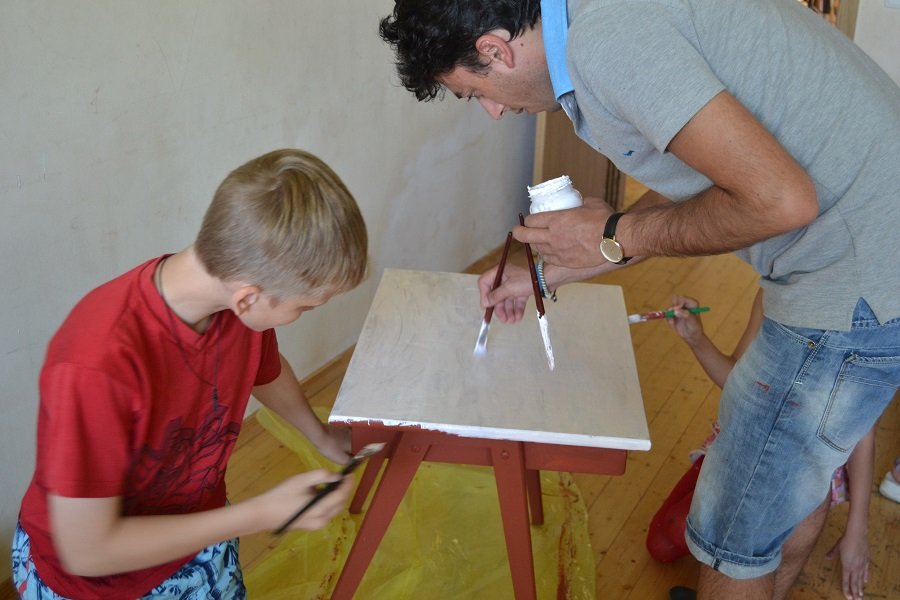
When we grow up, in our activities we often return to our childhood dreams, only this time we are more conscious and our dreaming enters the paradigm of actually being able to change harmful practices by taking action. This is what happened to Greta Tautavičiūtė, who, as a child, was very interested in orangutans. Later she went on volunteering with the Orangutan Foundation International.
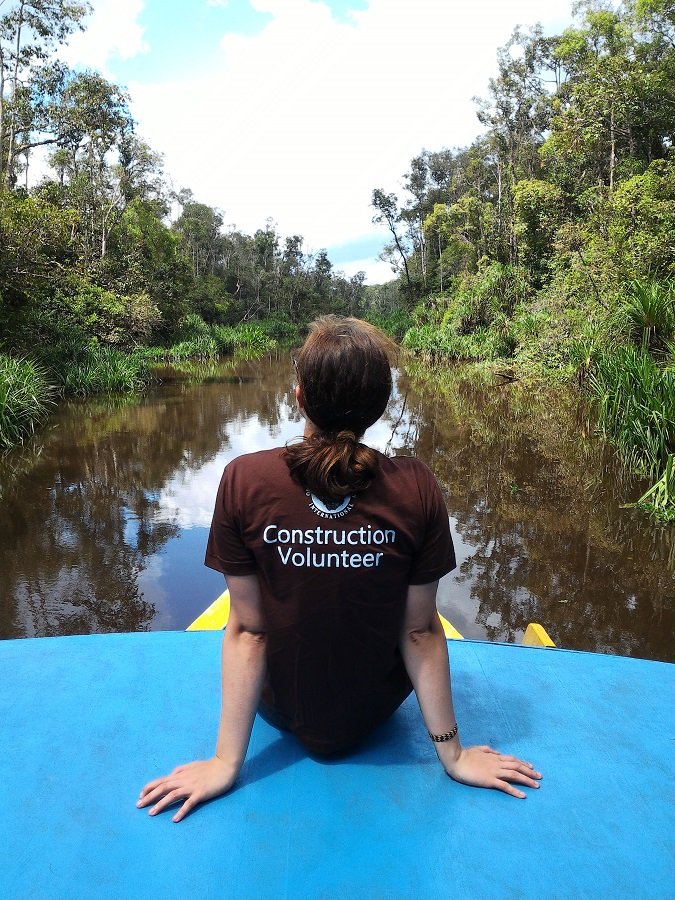
Greta says: “Together with other volunteers, for three weeks we lived in a rainforest where we contributed to the preservation of a natural reserve and had to find a way to help a crocodile become self-sufficient and learn to catch its own food, without the help of humans to whom he had been accustomed. I returned from this volunteering experience with more awareness and consciousness. By consuming products that contain palm oil, we directly contribute to the orangutans’ extinction, because entire rainforests – home to these beautiful creatures – are being destroyed to make way for oil palm plantations.”

After several months of volunteering with Volunteer Initiative Nepal, cinema-maker Šarūnas Mikulskis returned to Lithuania with a new documentary film Simple Dreams, which tells the personal stories of several Nepalese people. Šarūnas says: “Filming provides an opportunity to find yourself in a place where few wander. What I mean is not some exotic places or traditions, which tourists do not lack there, but the simple, daily life of local people. People in Nepal met me with my camera as people everywhere meet foreigners with a camera – with a mix of curiosity and suspicion. The first couple of days I just drank tea and talked or stayed in silence with the future protagonists of my documentary film. Trust came slowly and gradually, together with me getting a deeper understanding of that person’s life.”
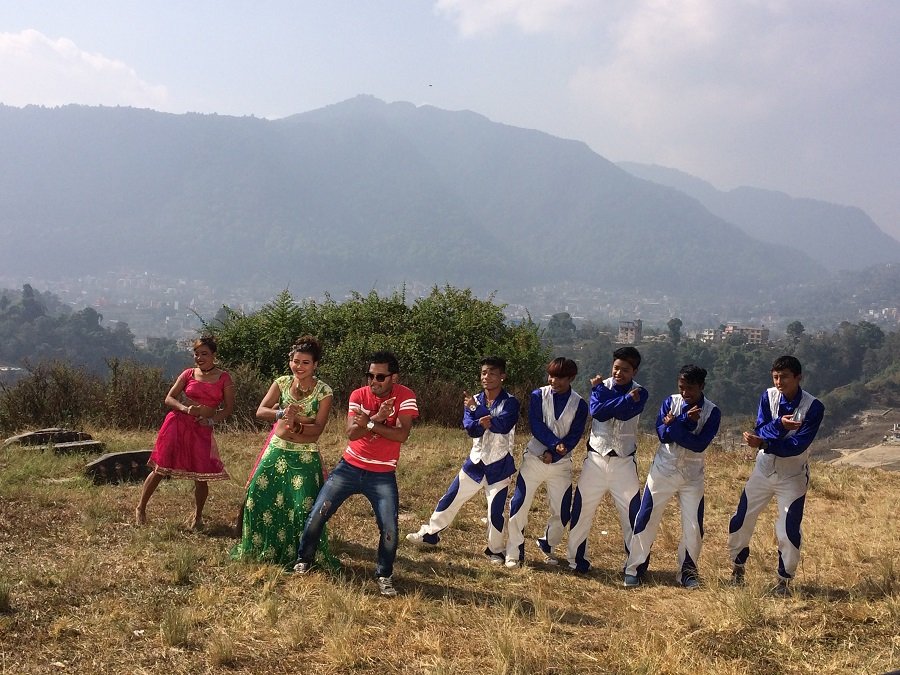
Documentary film and cinema in general can become a very powerful tool that can be used to care for one’s mental health, especially where people constantly experience psychological (and other types of) violence and especially where that violence is being used intentionally, systemically and under military occupation. Gabrielė Tervidytė, coordinator of the development cooperation project “Psychosocial therapy through personal documentary”, says: “Challenges faced by young people living in the West Bank of Palestine are completely different to those that youth in Lithuania or elsewhere in the West deal with. All Palestinians who live in these occupied territories, including the young ones, are forced to constantly encounter, in the streets and at military checkpoints, highly armed Israeli soldiers who not only restrict their freedom of movement, but also create this persecuting sense of not having a single place to feel free, open, and belonging. Psychological and mental problems occurring from the need to resist the occupation, both peacefully and non peacefully, generation after generation, are among the most horrible consequences of the ongoing Israeli occupation of Palestine. Every year, 500-700 Palestinian children are detained and “tried” in Israeli military courts. Such treatment of minors would not be tolerated in our society, however for Palestinian children this is bitter reality.”

Honesty is one of the fundamental daily conditions that lead us to having solid relationships with ourselves and with others. It is much needed in both professional life and in situations in which me might at first feel a bit uncomfortable. Remembering her volunteering experiences in Colombia, Justina Kaluinaitė says: “A colleague of mine had contacts with another organisation, Escuela Movil Acj, Bogotá, that works with youth living in problematic neighbourhoods. There I met Oscar, a social worker with 15 years of experience of working with the so-called youth “gangs”, aiming to improve their social skills. Oscar himself visits various neighbourhoods and what he does first of all is try to make a connection with local communities. Poverty, violence, drug abuse, forced prostitution are major problems there. For street youth, music is of huge importance – it is their preferred way to express suppressed feelings and the difficulties of their lived realities – hence, one of Oscar’s methods to engage the youth in his activities is to record their musical performances. Later on we helped organise a street rap festival. In the beginning I wasn’t sure how I could make myself useful, because such work required very strong specific skills. However, after several workshops, when people sensed that I sincerely pay attention to them and it is important to me, our connection was established.”
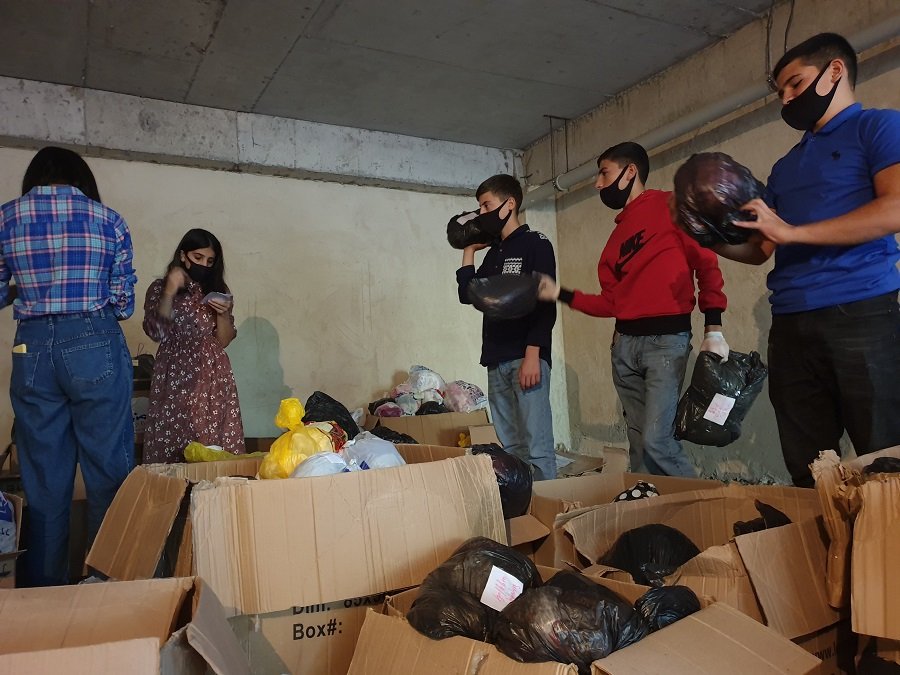
It’s a paradox – or perhaps not at all – that tragic situations often reveal the best of people, not only the worst. And while tragedies would better be omitted altogether, when they do happen, people who come together for a common goal become live evidence that human values operate not only in theory, but also in practice. Stasys Vaitonis is a witness to one such example. He says: “The armed conflict between Armenians and Azerbaijanis that renewed in September 2020 in the disputed territory of Nagorno-Karabakh created a humanitarian crisis. More than half of the civilian population of Nagorno-Karabakh were forced to leave their homes under gunfire. Thousands of refugees are coming to Armenia. They need clothes, food, shelter, and psychosocial assistance. The many local and international humanitarian organisations already present in Armenia are not enough and cannot cope. In the country itself there is a sense of unity in the society and determination to help those most in need. Various civil initiatives and volunteer-based activities are spontaneously sprouting up. Work doesn’t stop even on a sunny Sunday afternoon. In this cellar-warehouse there were several teenagers from Nagorno-Karabakh working there. Refugees themselves, they said they cannot just sit and do nothing under such circumstances.”
Local people are the best experts in solving their own problems. Yet sometimes outside help is being put to good use, too. Ugnė Grigaitė works in mental health. Talking about her academic efforts to contribute to the work done by local people, she says: “Violence against women who are accused of witchcraft is part of Nepal’s realities. We conducted research in Nepal about this particular type of violence together with Manchhe Boksi Hunna, the only NGO in the country that specifically works with the problem of accusations of witchcraft (mostly women) and all its tragic consequences. We also participated in awareness-raising events. Our research contributed to the continuity and expansion of the work of local NGOs in this field, as well as to the substantiation of their importance and the development of new initiatives. I am also very happy for the fact that the recommendations of our report were formulated based on the good practices created and developed by local people, as well as their ideas on how best to deal with challenges related to this problem in Nepal.”

Every story contains within itself numerous details, participants, influences, oppositions, consequences, reasons, and interpretations. No one land is one particular thing only, therefore describing it with one word would not only be unfair to its diversity but also very limiting. Independent journalist Giedrė Steikūnaitė says: “Kigali, the capital of Rwanda, is a very green, very clean, and very quiet city. Green for its warm climate; clean for its wide campaign against waste and huge fines for littering; and quiet, for its past and, partly, for its present. The youth here are highly motivated, energetic, and see their future in the IT sector. But the majority of Rwandese – some 80 per cent – are small-scale farmers. Many live in financial poverty. Some receive help from a governmental programme titled Girinka (which translates as “May you have a cow”), under which a family is being given a cow; cattle means better nutrition for the children, higher social status for the parents, and free organic fertilizer for the agricultural lot.”
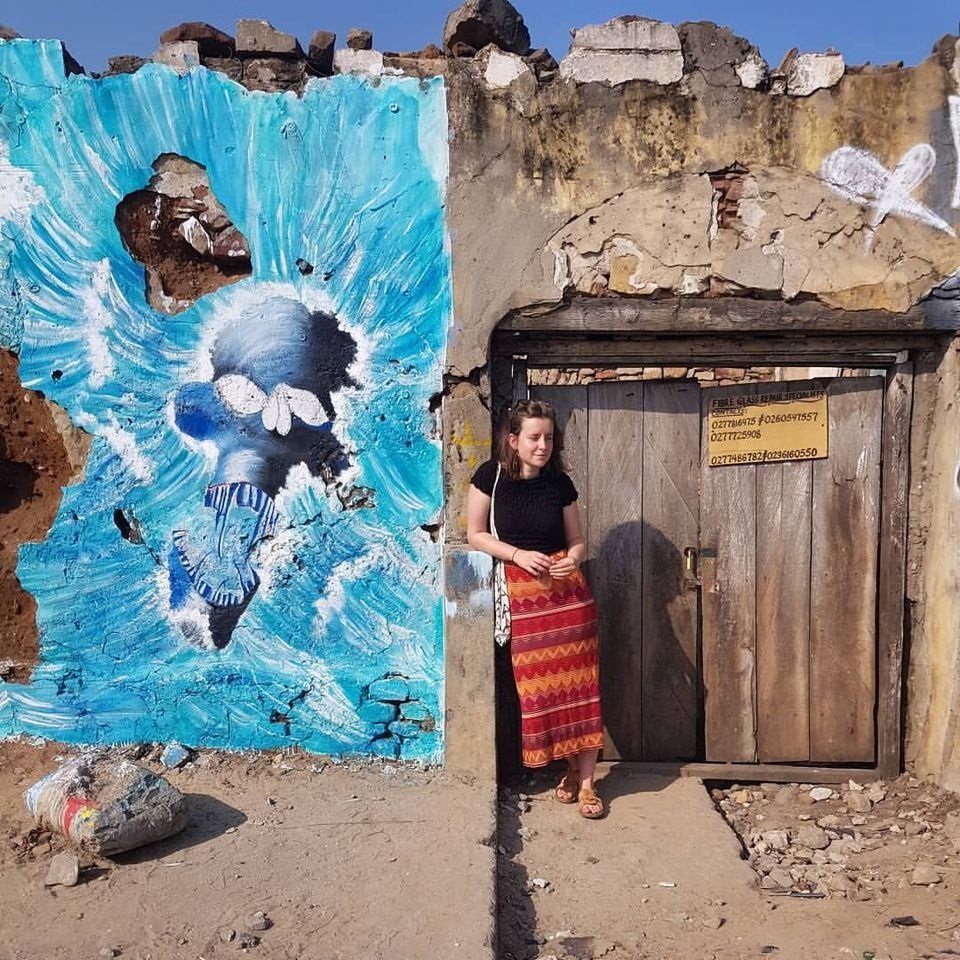
Not everything in life goes according to one’s plans. Just like humans, Mother Nature, too, makes jokes – sometimes with horrific consequences. Just ask Laurynas Trakimas who volunteered with Asociación Mexicana de Voluntariado Internacional. He says: “Shortly after my arrival, the volunteering project I had come to join had an unexpected turn: at that time, two major earthquakes hit Mexico. The second one cost the lives of almost 200 people, numerous families were left homeless and jobless. It is absolutely true that in the face of a tragedy people help each other, whatever the needs. The whole community became united as a fist. To witness this and to contribute to it was a very strong emotional as well as humane experience.”
Volunteering provides a wide range of life lessons to volunteers themselves. Apart from the benefits of the actual work done, learning these lessons is one of the most important aspects of becoming a volunteer. Gintė Marija Ivanauskienė, who volunteered with Ghana’s Urban Poor Child Organization, says: “The main lesson I learned is to find ways to be useful. As opposed to doing whatever comes to your mind, when you are abroad you should first thoroughly examine the situation and find out what is most needed. I learned to be flexible and not to impose my personal opinions on anyone. It is very easy to shout out ideas without knowing the realities of the place and their customs – but such ideas never come to fruit. Undoubtedly, the biggest changes a volunteering experience can bring is to the volunteer themself: during this time the volunteer’s mentality is changing rapidly. Later on, by way of the domino effect, the mentality of their circle of people also changes. I returned having understood how little I know about the world. I now carefully choose my words and notice how many stereotypes of all kinds we have in our minds.”

Be the first to comment